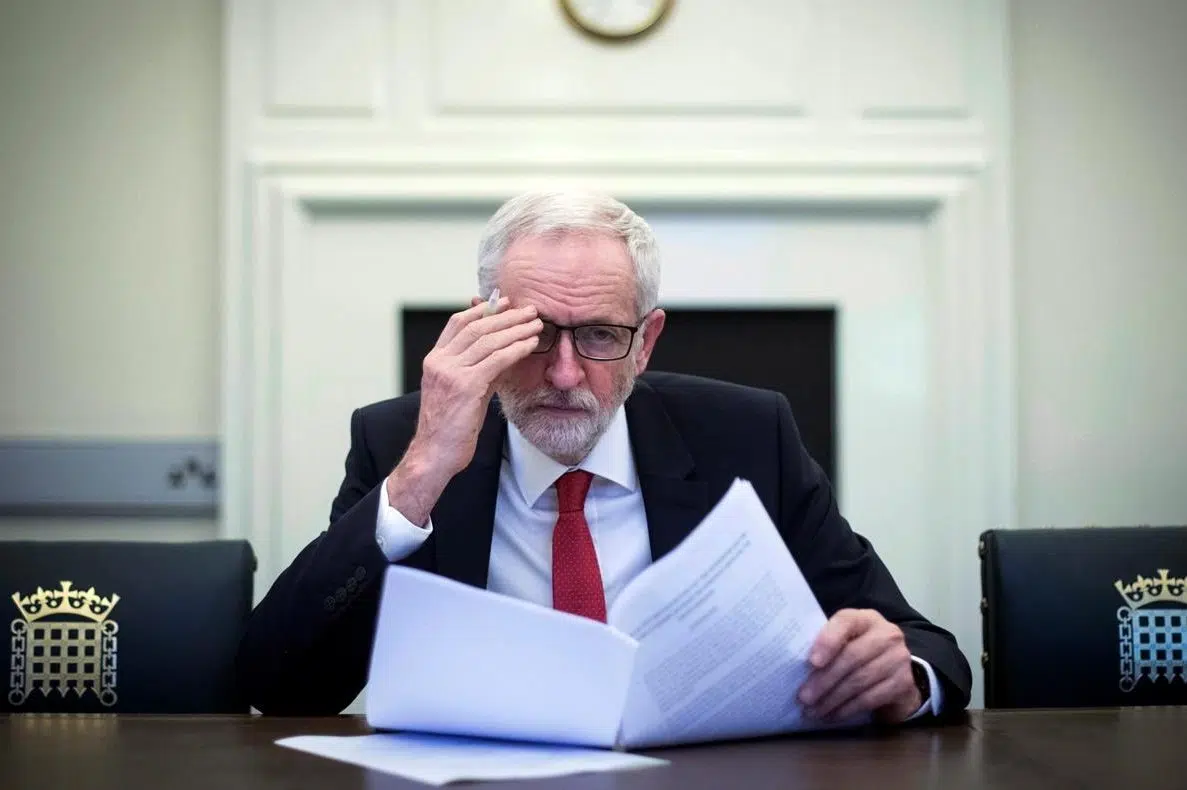LONDON — Britain’s government and the main opposition party were clinging to hope Monday of finding a compromise Brexit deal, two days before Prime Minister Theresa May must try to persuade European Union leaders to grant a delay to the U.K.’s departure from the bloc.
If the bloc refuses, Britain faces a sudden and chaotic departure on Friday, the Brexit deadline previously set by the EU.
May sought talks with the opposition Labour Party after Parliament three times voted down her divorce deal with the EU. Three days of negotiations last week failed to yield a breakthrough, with Labour saying the Conservative government had not offered concrete changes to its Brexit plan.
Labour Brexit spokesman Keir Starmer said “the ball is in the government’s court.”
“At the moment we’re waiting to see what the government is putting on the table as a proposal,” he said.
May’s Downing Street office said the talks had shown “willingness to compromise on both sides.”
“We hope that there will be further formal discussion” with Labour later Monday, said May’s spokeswoman, Alison Donnelly.
May has asked the EU to delay Brexit until June 30, to give Britain’s divided politicians time to agree, approve and implement a withdrawal agreement. The bloc’s leaders are due to meet in Brussels Wednesday to consider the request.
An extension requires unanimous approval from the 27 remaining national leaders, some of whom are fed up with Brexit uncertainty and reluctant to prolong it further.
Downing Street said May would hold face-to-face talks with the French and German leaders before the EU summit, to lay out her reasons for seeking a Brexit delay.
She plans to fly to Berlin Tuesday to meet Chancellor Angela Merkel, then on to Paris for talks with President Emmanuel Macron.
Macron has been particularly resistant to the idea of further delay to Brexit, saying the EU can’t be held “hostage” to Britain’s political crisis.
British Foreign Secretary Jeremy Hunt said May “is totally and utterly determined to deliver Brexit.”
Hunt said of the other 27 EU leaders that “they want Brexit to be resolved as quickly as possible. So do we.”
But it’s unclear whether talks between the government and the left-of-centre Labour Party will break the impasse that last left Britain uncertain how — or even whether— it will leave the EU.
Labour favours a softer Brexit than the government has proposed, including a close economic relationship with the bloc through a customs union.
Culture Secretary Jeremy Wright said Monday that both parties “must make sure we’re all prepared to compromise.”
“There’s some urgency to it, but I do think it’s important for everyone to take their responsibilities seriously, whatever party they come from, and try and get to a point where we leave the EU, as people have said they wish to do, and to do it on the best possible terms,” he told the BBC. “I think that’s achievable.”
After U.K. lawmakers three times rejected May’s agreement with the bloc that was struck late last year, the EU gave Britain until April 12 to approve a withdrawal plan, change course and seek a further delay to Brexit, or crash out of the EU with no deal to cushion the shock.
Economists and business leaders warn that a no-deal Brexit would lead to huge disruptions in trade and travel, with tariffs and customs checks causing gridlock at British ports and possible shortages of goods.
Worries about a no-deal Brexit are especially acute in Ireland, the only EU member state to share a land border with the U.K. Any customs checks or other obstacles along the currently invisible frontier would hammer the Irish economy, and could undermine Northern Ireland’s peace process.
EU chief Brexit negotiator Michel Barnier was due in Dublin on Monday for talks with Irish Prime Minister Leo Varadkar.
Any compromise between May’s government and Labour is sure to inflame divisions within each party over Brexit. Labour is formally committed to enacting the voters’ decision to leave the EU, but many of its lawmakers want a new referendum that could keep Britain in the bloc. They will be angry if the party actively helps bring about the U.K.’s departure.
May’s rapprochement with Labour has infuriated pro-Brexit lawmakers in her Conservative Party, who say Britain must cut ties to the EU in order to forge an independent economic policy.
Former Foreign Secretary Boris Johnson, a leading Brexiteer, said a customs union would “enslave” the U.K.
Johnson tweeted: “We should not agree to be non-voting members of the EU, under the surrender proposed by (Labour leader) Jeremy Corbyn — it cannot, must not and will not happen.”
Amid the continuing uncertainty, some Brexit supporters are having second thoughts. Newspaper columnist Peter Oborne said he voted to leave the EU and long supported it but now believed Brexit would be a “disaster for our country.”
“Brexit has paralyzed the system. It has turned Britain into a laughing stock. And it is certain to make us poorer and to lead to lower incomes and lost jobs,” he wrote on the Open Democracy website.
___
Raf Casert in Brussels contributed to this story.
___
Follow AP’s full coverage of Brexit at: https://www.apnews.com/Brexit
Jill Lawless And Danica Kirka, The Associated Press







